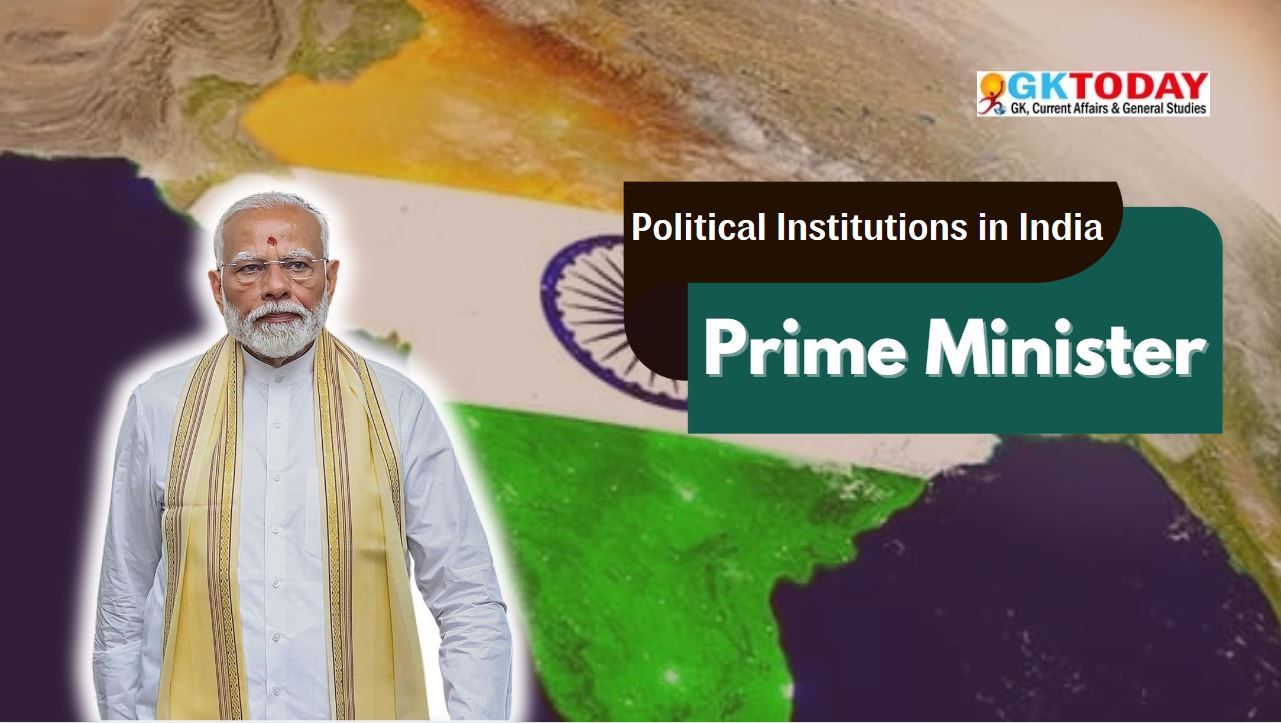Prime Minister of India – UGC-NTA NET Political Science
The Prime Minister (PM) of India is the head of the Union government and plays a very important role in shaping the country’s administration and policies. As the chief executive, the PM is responsible for implementing laws and overseeing the governance of the nation.
Definition and Role
The Prime Minister is the principal leader of the executive branch of the Government of India. The PM leads the Council of Ministers and is accountable to the Lok Sabha, the lower house of Parliament. The PM’s responsibilities include formulating government policies, executing laws, and representing India on international platforms.
Constitutional Provisions
The Constitution of India outlines the role and authority of the Prime Minister in various articles:
- Article 75: The President appoints the Prime Minister, who must be a member of either House of Parliament. The PM can recommend the appointment of other ministers.
- Article 78: The PM communicates decisions of the Council of Ministers to the President and is responsible for Union administration.
Appointment
The appointment of the Prime Minister occurs after general elections. The President typically invites the leader of the majority party in the Lok Sabha to assume office. In cases where no party achieves a clear majority, the President may call upon the leader of the largest coalition.
Tenure
The Prime Minister does not have a fixed term. The PM serves at the discretion of the President and can be removed through a vote of no-confidence in the Lok Sabha. The maximum duration for a Lok Sabha term is five years.
Powers and Functions
The Prime Minister possesses various powers divided into categories:
Executive Powers
- Appoints and dismisses ministers.
- Supervises the Cabinet’s functioning.
- Manages Union government administration.
Legislative Powers
- Summons and prorogues sessions of Parliament.
- Can recommend the dissolution of the Lok Sabha.
- Plays a vital role in formulating and presenting the Union Budget.
Financial Powers
- Proposes money bills to Parliament.
- Oversees the financial administration of the nation.
Diplomatic Powers
- Represents India in international forums.
- Appoints ambassadors and high commissioners.
Council of Ministers
The Prime Minister leads the Council of Ministers, which is collectively responsible to the Lok Sabha. The Council consists of various types of ministers:
- Cabinet Ministers
- Ministers of State
- Deputy Ministers
Leadership and Decision-Making
The PM is the chief decision-maker in the Cabinet. The PM influences policy formulation and ensures the implementation of government decisions. Coordination between different ministries is a critical aspect of the PM’s role.
Relationship with the President
The relationship between the Prime Minister and the President is based on mutual trust and cooperation. The PM advises the President on various matters and helps in the execution of the President’s functions.
Political Significance
The Prime Minister influences national policies and governance. The PM plays important role in party politics and electoral strategies, shaping the political landscape of India.
Notable Prime Ministers
Several Prime Ministers have left a lasting impact on India:
- Jawaharlal Nehru (1947-1964): The first PM and architect of modern India.
- Indira Gandhi (1966-1977, 1980-1984): The first and only female PM of India.
- Rajiv Gandhi (1984-1989): The youngest PM at age 40.
- Atal Bihari Vajpayee (1998-2004): The first PM from the Bharatiya Janata Party (BJP).
- Manmohan Singh (2004-2014): An acclaimed economist who led the UPA government.
- Narendra Modi (2014-present): The current PM, known for policy changes.
Challenges Faced
Prime Ministers face several challenges during their tenure, including:
- Coalition politics and instability.
- Managing diverse regional and national interests.
- Addressing economic challenges and governance issues.
Recent Developments
Recent Prime Ministers have focused on various initiatives:
- Digital Governance: Emphasising technology in administration.
- Economic Reforms: Initiatives like “Make in India” and “Digital India.”
- Social Initiatives: Campaigns like “Swachh Bharat Abhiyan” for cleanliness.
Global Issues Response
The role of the Prime Minister extends to addressing global challenges:
- Climate change and its impact on India.
- International relations and diplomacy.
The Prime Minister of India is a central figure in the nation’s governance. The role encompasses a wide array of responsibilities, from leading the executive branch to shaping policy and representing the country on the global stage. About the intricacies of this position is essential for grasping the dynamics of Indian politics.


